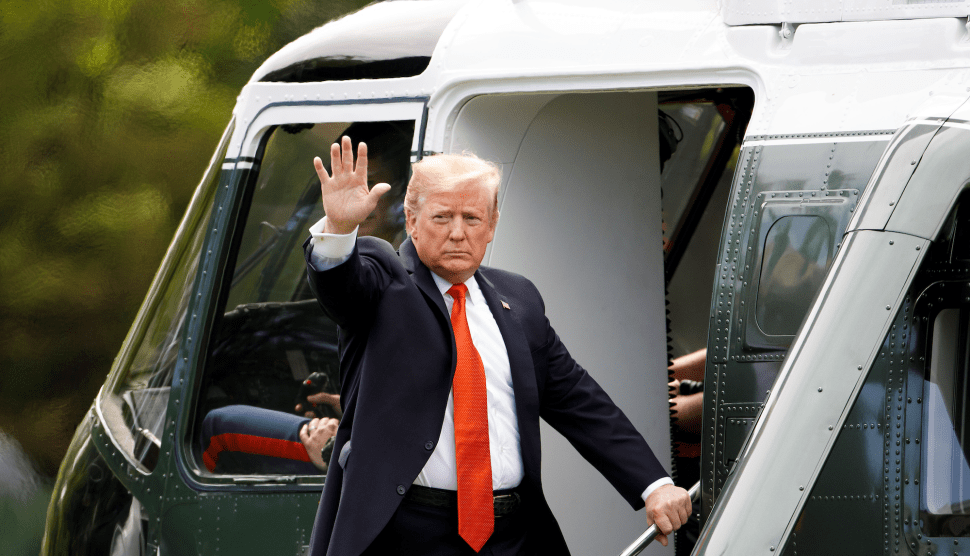
Ting Shen/ZUMA
President Donald Trump on Friday defended his response to the deadly 2017 white supremacist rally in Charlottesville, Virginia, claiming that his assertion at the time that there were “very fine people on both sides” had been stated “perfectly.” Trump argued that his remarks—which drew fierce bipartisan condemnation at the time—have been taken out of context.
Trump’s 2017 comments followed a weekend of violence sparked by a collection of far-right groups that converged on Charlottesville, ostensibly to protest plans to remove a statue of Confederate General Robert E. Lee. Heather Heyer, a counter-protester, was murdered by a neo-Nazi during the rally.
The remarks were once again in the news this week after former Vice President Joe Biden condemned them in a video announcing his bid for the Democratic presidential nomination. “Very fine people on both sides?” Biden said. “With those words, the president of the United States assigned a moral equivalence between those spreading hate and those with the courage to stand against it.”
Asked Friday about the controversy, Trump said, “If you look at what I said, you will see that that question was answered perfectly. I was talking about people that went because they felt very strongly about the monument to Robert E. Lee, a great general, whether you like it or not.”
“People were there protesting the taking down of the monument of Robert E. Lee,” he continued. “Everybody knows that.”
Trump defended his response to the violence in Charlottesville in 2017 when he said there were “very fine people on both sides.”
He said the was talking about people who “felt very strongly about the monument to Robert E. Lee. A great general, whether you like it or not.” pic.twitter.com/fulPWpY4zC
— POLITICO (@politico) April 26, 2019
Trump’s defense of his 2017 statements echoes arguments made recently by a number of right-wing media figures. But as the Washington Post’s Aaron Blake explains, it’s completely absurd to claim that there was somehow a distinct group of “very fine people” who had allied themselves with violent, avowedly racist thugs chanting, among other things, “Jews will not replace us”:
They note that Trump, at one point, explicitly excluded neo-Nazis and white nationalists from his “very fine people” formulation…But it leads to the question: Which “very fine people” was he talking about? The “Unite the Right” rally was partly organized by a well-known white nationalist, Richard Spencer, and included both neo-Nazis and white supremacist groups. Former Ku Klux Klan head David Duke was a scheduled speaker…For the Trump defense to make any sense, there would have had to be some other group of people who didn’t subscribe to these awful ideals but for some reason decided to march in common cause with neo-Nazis, white supremacists and white nationalists.








